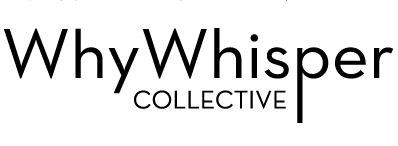As many of us know all too well, getting an education can be expensive.
In Tuesday’s State of the Union address, President Obama said that “too many bright Americans are priced out of the education that they need,” and reinforced his plan to provide free community college to students who want to attend but can’t afford it. He argued that our society rewards education in a greater way than ever before, making it increasingly crucial for everyone to have access to education, regardless of socioeconomic status.
In light of the movement towards accessible education, we’re excited to share some of the many courses that you can access for free online. Whether you are interested in picking up a new skill or want to learn more about a subject that interests you, these sites provide you with the opportunity to do so without racking up unnecessary debt. Plus, online learning can be incredibly effective: A report by the U.S. Department of Education notes that classes with an online learning component “on average, produce stronger student learning outcomes than do classes with solely face-to-face instruction.”
Here are a few of our favorite resources for free online courses:
Coursera is a for-profit education platform that offers a wide variety of massive open online courses, or MOOCs. As of October of last year, over 22 million individuals were enrolled in the almost 600 courses available on the platform. Founded by Stanford graduates, Coursera partners with over 100 colleges and universities worldwide to offer a selection of their courses online for free.
With Coursera, you can complete your assignments and reading on a relatively flexible schedule, making it ideal for those who are unable to commit to a predetermined course timeline. That said, you won’t be able to work entirely at your own pace: only a portion of each course’s curriculum is “active” at a given time, so you will need to complete assignments during the allotted time period. This is because with Coursera, you are actually interacting with a professor and other students, giving you the chance to ask questions and engage in class discussion throughout the given time period.
Coursera also offers Verified Certificates to those students who complete a course on a Signature Track. This is essentially a paid version of an otherwise free course, thereby giving students official verification of course completion.
edX is a non-profit MOOC provider that is similar to Coursera in that it offers free courses that are affiliated with colleges and universities from all over the world. Founded by graduates of Harvard and MIT, edX offers over 400 courses to more than 3 million users worldwide.
As with Coursera, edX courses are on a fixed timeline, but with flexibility around when students can complete assignments within that given timeline. edX also offers students the option to pay for a Verified Certificate, similar to the option provided by Coursera.
When it comes to deciding between Coursera and edX, we suggest that you choose which you’ll use based on the available course options, as both offer similar features.
Khan Academy is a non-profit education platform that develops and provides YouTube video lectures on a variety of subjects. Khan Academy courses are for all ages, starting with Kindergarten-level. The platform also provides tools and educational resources for teachers, along with resources on subjects like college admissions. Khan Academy’s lectures are available worldwide, and are currently translated into almost 40 languages.
Because Khan Academy’s courses are not affiliated with specific institutions, you can really learn at your own pace. Just select the topics that you want to learn, and then watch the videos and complete the associated exercises, as you’re able.
Skillshare is different from the other platforms we’ve discussed thus far, in that it is geared toward creative fields rather than academic subjects. Skillshare, whose subjects range from photography to advertising to food and more, allows students to work at their own pace, while also providing them with access to a community of others who are taking related courses.
Skillshare offers free and paid membership options. The paid version provides users with unlimited access to their courses for $8 a month. This supports its teachers and also includes a donation to a membership for a student in need. Team membership is a bit more costly at $24 a month, but it provides students with personalized learning plans, dedicated learning experts, and detailed progress tracking.
Codecademy is an free online education platform for those who want to learn how to code, offering courses in 6 different programming languages – HTML & CSS, Javascript, jQuery, Python, Ruby, and PHP. As of September 2014, Codecademy had over 24 million unique users.
With Codecademy, users build their own profiles and then work on their own projects – all at their own paces. Whether you’re looking to build a personal website or start a new career in computer programming, Codecademy’s lessons and exercises will help you develop the coding-related skills you need. Additionally, it provides feedback on users’ work, and badges upon completion of different exercises, so as to provide encouragement as you master the art of coding.
These platforms are revolutionizing education by opening doors for bright individuals who may not otherwise have the means to pursue learning opportunities.
Do you know of free educational platforms that you think others should know about too? Share it with us in the comments below, or on Facebook, Twitter, or Instagram. We’re happy to help spread the word.







